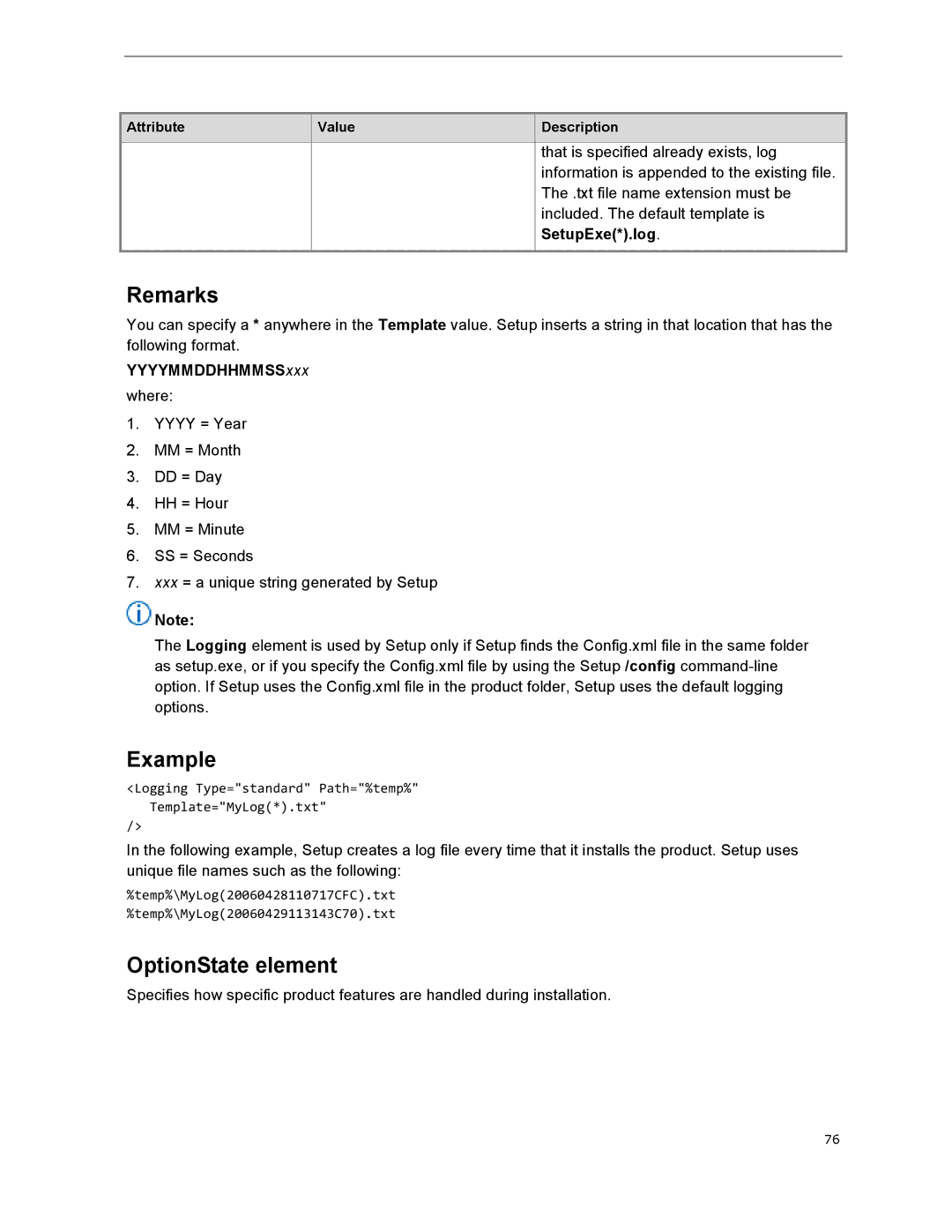| Attribute |
|
| Value |
|
| Description |
|
|
|
|
|
|
| |||
|
|
|
|
|
|
|
|
|
|
|
|
|
|
| that is specified already exists, log |
| |
|
|
|
|
|
| information is appended to the existing file. |
| |
|
|
|
|
|
| The .txt file name extension must be |
| |
|
|
|
|
|
| included. The default template is |
| |
|
|
|
|
|
| SetupExe(*).log. |
| |
|
|
|
|
|
|
|
|
|
Remarks
You can specify a * anywhere in the Template value. Setup inserts a string in that location that has the following format.
YYYYMMDDHHMMSSxxx
where:
1.YYYY = Year
2.MM = Month
3.DD = Day
4.HH = Hour
5.MM = Minute
6.SS = Seconds
7.xxx = a unique string generated by Setup
![]() Note:
Note:
The Logging element is used by Setup only if Setup finds the Config.xml file in the same folder as setup.exe, or if you specify the Config.xml file by using the Setup /config
Example
<Logging Type="standard" Path="%temp%" Template="MyLog(*).txt"
/>
In the following example, Setup creates a log file every time that it installs the product. Setup uses unique file names such as the following:
%temp%\MyLog(20060428110717CFC).txt %temp%\MyLog(20060429113143C70).txt
OptionState element
Specifies how specific product features are handled during installation.
76
